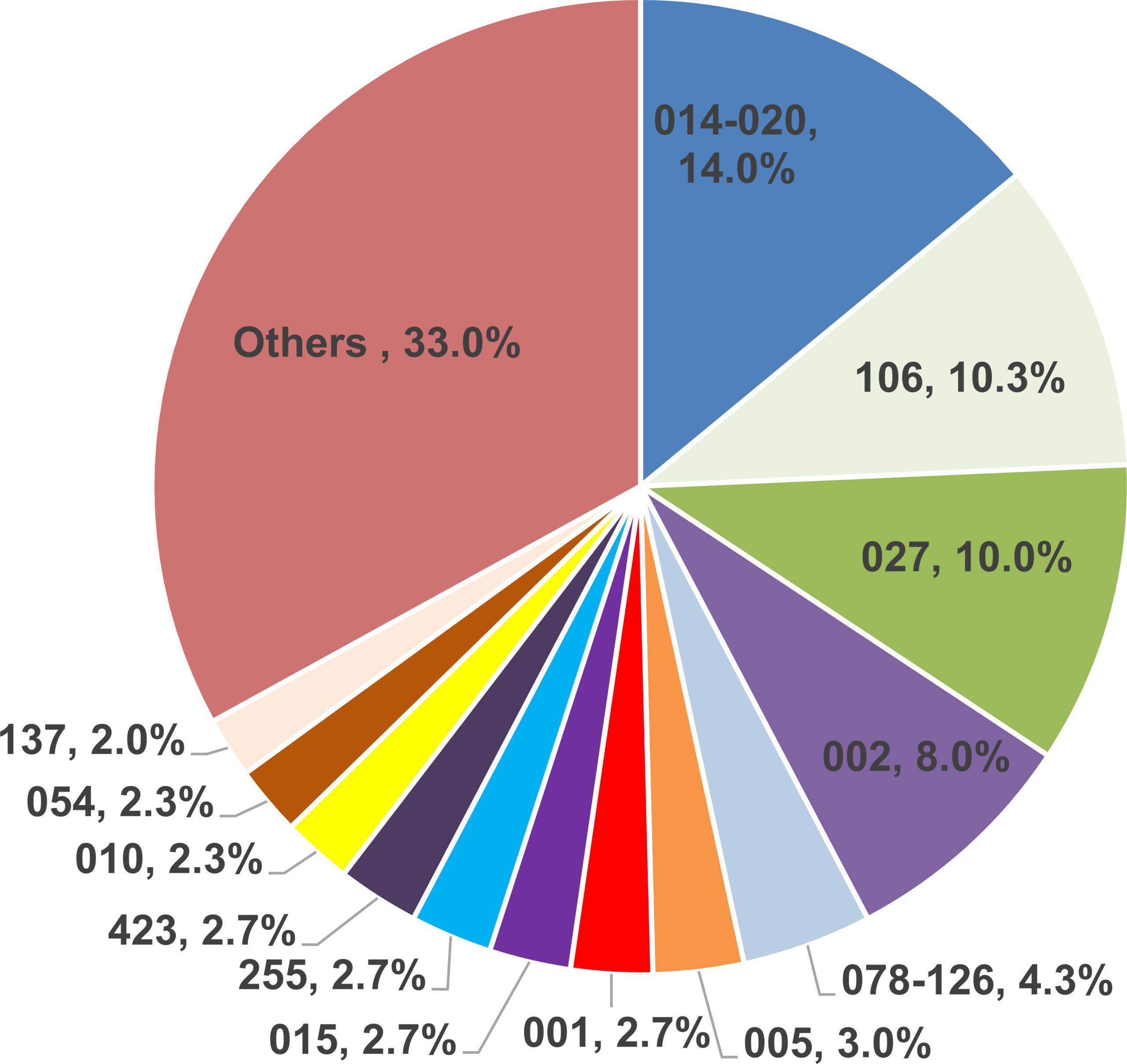A US-based national surveillance study for the susceptibility and epidemiology of Clostridioides difficile isolates with special reference to ridinilazole: 2020–2021
D. R. Snydman, L. A. McDermott, C. M. Thorpe, E. J. C. Goldstein, A. N. Schuetz, S. Johnson, D. N. Gerding, L. Gluck, D. Bourdas, K. C. Carroll, C. K. Lancaster, K. W. Garey, Q. Wang, S. T. Walk, E. Duperchy
PMID: 37728368 | PMCID: PMC10583687 | DOI: 10.1128/aac.00349-23
We have previously reported on the susceptibility and epidemiology of Clostridioides difficileisolates from six geographically dispersed medical centers in the United States. This current survey was conducted with isolates collected in 2020-2021 from six geographically dispersed medical centers in the United States, with specific attention to susceptibility to ridinilazole as well as nine comparators. C. difficile isolates or stools from patients with C. difficile antibiotic-associated diarrhea were collected and referred to a central laboratory. After species confirmation of 300 isolates at the central laboratory, antibiotic susceptibilities were determined by the agar dilution method [M11-A9, Clinical and Laboratory Standards Institute (CLSI)] against the 10 agents. Ribotyping was performed by PCR capillary gel electrophoresis on all isolates. Ridinilazole had a minimum inhibitory concentration (MIC) 90 of 0.25 mcg/mL, and no isolate had an MIC greater than 0.5 mcg/mL. In comparison, fidaxomicin had an MIC 90 of 0.5 mcg/mL. The vancomycin MIC 90 was 2 mcg/mL with a 0.7% resistance rate [both CLSI and European Committee on Antimicrobial Susceptibility Testing (EUCAST) criteria]. The metronidazole MIC 90 was 1 mcg/mL, with none resistant by CLSI criteria, and a 0.3% resistance rate by EUCAST criteria. Among the 50 different ribotypes isolated in the survey, the most common ribotype was 014-020 (14.0%) followed by 106 (10.3%), 027 (10%), 002 (8%), and 078-126 (4.3%). Ridinilazole maintained activity against all ribotypes and all strains resistant to any other agent tested. Ridinilazole showed excellent in vitroactivity against C. difficile isolates collected between 2020 and 2021 in the United States, independent of ribotype.
Keywords: Clostridioides difficile; US surveillance studies; in vitro activity; ribotyping; ridinilazole.





